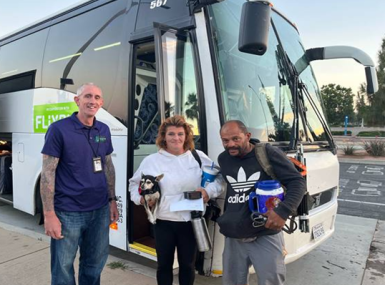Insights from county leaders on the future of early childhood care and education
Author

Kat Patterson
Upcoming Events
Related News

Key Takeaways
The 2025 Legislative Conference’s Prenatal-to-Three (PN-3) breakfast and listening session gathered county leaders to discuss key challenges and opportunities in early childhood care and education. The session focused on identifying barriers, exploring solutions, and supporting local leaders advancing PN-3 priorities.
Key challenges
County leaders outlined several significant challenges in delivering PN-3 services. A shortage of quality childcare and difficulties in hiring and retaining staff were top concerns. Participants also mentioned the difficulty in persuading lawmakers of the value of childcare and early literacy deficits.
Another major concern was maintaining PN-3 programming in the face of staffing and funding difficulties. Leaders expressed frustration over fragmented, siloed services and the need for stronger cross-sector collaboration.
Innovative approaches
Counties are exploring creative strategies to leverage existing and new PN-3 investments. Some notable approaches include:
- Building cross-sector partnerships with first responders, community colleges, universities, and local organizations like the YMCA to maximize resources and expand services.
- Investing federal funds into childcare programs, with some counties exploring property tax-funded models, like the Children's Trust in one county, which drew significant peer interest.
- Expanding broadband access for in-home childcare providers, supported by American Rescue Plan Act funding, to ensure equitable access to virtual learning and resources.
- Promoting childcare careers through programs like high school academies, designed to reframe childcare work as a valued career path rather than a fallback option.
- Engaging local communities by partnering with public health departments and immigrant and refugee groups, relying on community connectors with lived experiences to build trust and improve access to services.
NACo’s role
County leaders identified ways the National Association of Counties (NACo) could support local PN-3 efforts:
Facilitating regular meetings and information exchanges for members, whether virtual or in person.
Creating resource hubs showcasing successful initiatives and lessons learned.
Providing data analysis to help counties make evidence-based decisions and maximize their impact.
Advocating at the federal level for continued, flexible funding for PN-3 programs.
Offering innovative strategies to help counties transform early childhood systems.
Supporting statewide efforts and spotlighting states with effective, scalable models.
Looking ahead
The session highlighted the complex, interconnected nature of early childhood care and education challenges. From workforce issues to funding constraints, counties are grappling with challenges that require collaborative, innovative solutions.
Moving forward, data-driven strategies, cross-sector partnerships, and sustainable funding models will be crucial. The insights shared during this session provide a roadmap for counties looking to strengthen their PN-3 initiatives and for organizations like NACo seeking to support these efforts.
By fostering ongoing dialogue, promoting best practices, and advocating for effective policies, county leaders are driving efforts to ensure every child has access to quality early care and education. As one leader aptly noted, this isn't just a family issue – it's a community issue that requires collective action and commitment.
Related News

Team approach, website help California county tackle homelessness
Riverside County, Calif. created a multidisciplinary team to better and more efficiently serve its unsheltered population and share success stories and data through a website.

Ohio county boosts community youth programs with ARPA funding
Hamilton County, Ohio invested ARPA dollars in community organizations through the INSPIRE Youth initiative.
County News
Counties for Kids campaign and website offer early childhood resources

